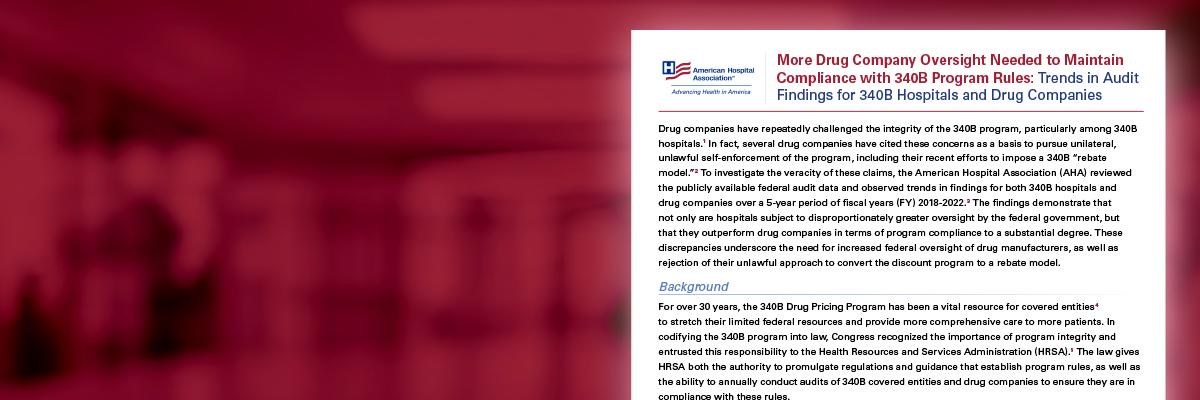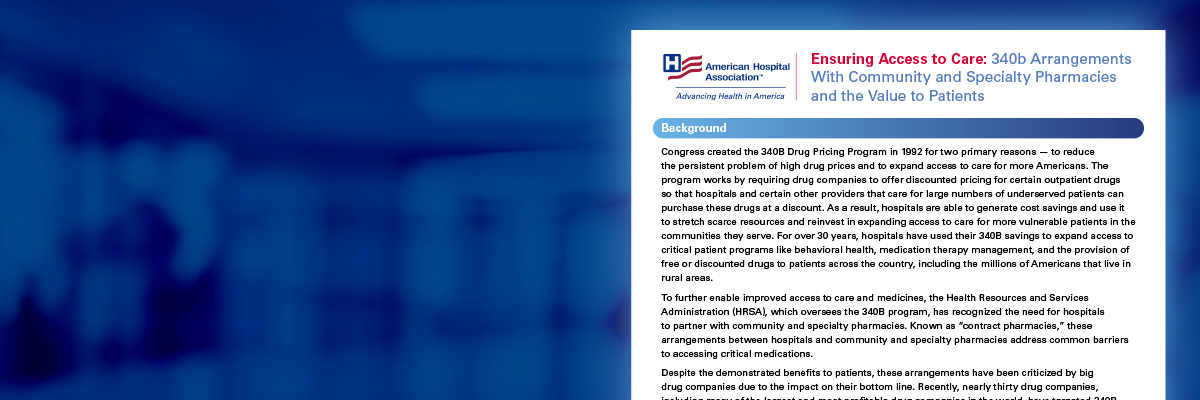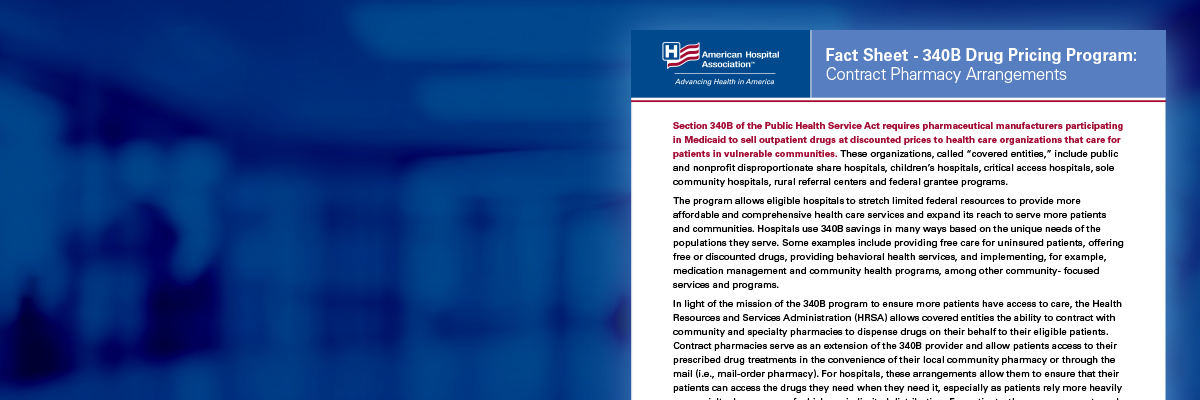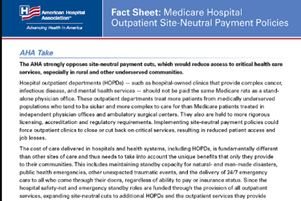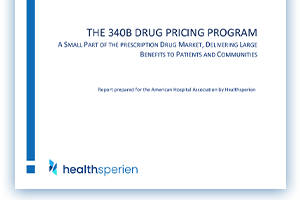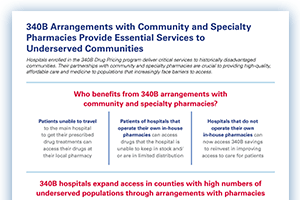
340B Drug Pricing Program
For more than 30 years, the 340B Drug Pricing Program has provided financial help to hospitals serving vulnerable communities to manage rising prescription drug costs.
What is the 340B Program? This program, administered by the Health Resources and Services Administration (HRSA), allows 340B hospitals to stretch limited federal resources to reduce the price of outpatient pharmaceuticals for patients and expand health services to the patients and communities they serve. Hospitals use 340B savings to provide, for example, free care for uninsured patients, offer free vaccines, provide services in mental health clinics, and implement medication management and community health programs. According to HRSA, enrolled hospitals and other covered entities can achieve average savings of 25% to 50% in pharmaceutical purchases.
Which organizations are eligible? Several types of hospitals are eligible to participate in the 340B program including critical access hospitals (CAHs), sole community hospitals (SCHs), rural referral centers (RRCs), public and private nonprofit disproportionate share hospitals (DSHs) that serve high numbers of low-income and indigent populations, and free-standing cancer and children’s hospitals. Several types of federal grantee organizations such as community health centers also are eligible to participate in the program.
What are some challenges to the program? Despite rigorous oversight from HRSA and the program’s proven record of expanding access to care for Americans nationwide, critics continue to push to diminish the scope of the program and the benefits it affords eligible providers and their patients.
340B Resources
Member Resources
The AHA Advocacy Alliance for the 340B program focuses on promoting the value that the 340B program provides to hospitals, patients and communities, as well as preventing attempts to scale back this program. Join the alliance for access to email communications, conference calls and special briefings. Join the Alliance.
Through email communications like alliance emails, action alerts and special messages, the 340B Alliance keeps hospitals informed of the latest news and developments on the program, as well as actions hospital leaders can take to support the program. Learn More
Latest 340B Content
The Health Resources and Services Administration Feb. 25 said it will extend the deadline to April 20 to receive comments on its request for information on whether to implement a 340B rebate model program. Comments on the RFI were originally due March 19.
The U.S. District Court for the District of Hawaii Feb. 23 denied a preliminary injunction requested by AstraZeneca in a case challenging the state’s law protecting 340B pricing for contract pharmacy arrangements. The court held that Hawaii’s law is not preempted by the federal law, does not violate the Constitution’s spending clause and does not discriminate against federal contractors.



